#just to see if everything is alright
Text
I find it highly amusing how in situations where the ninja are separated/it's just the OG four, Kai and Zane immediately assume control/start spearheading the team because apparently no one else is sane enough or in the right mind to do so.
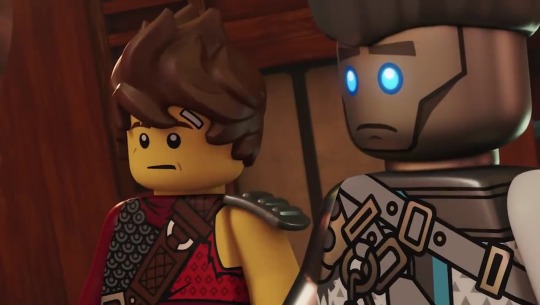
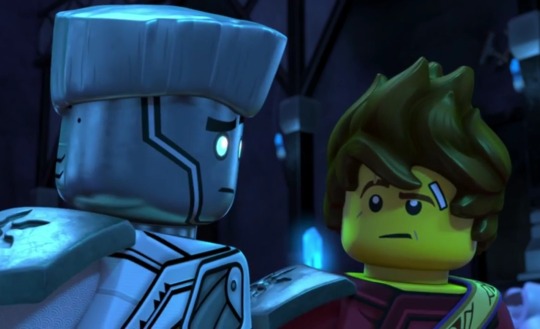

Your honour, they literally have one of the best dynamics in the show, with how they're probably the most protective people in the team. And it makes me mad how this is overlooked by the fandom and the show.
#ninjago#zane julien#kai smith#Seriously tho#Aside from Cole#They're probably the most competent to lead#In Hunted they're mainly the ones working on everything#Fixing the radio#Jay has lost his shit and Cole is pre occupied with taking care of Wu#In MotM they just#Kai becomes the fucking Chancellor and with Zane as his Vice/right hand man#And in crystalized they're the only ones that are serious about this stuff#They're tracking Lloyd while Jay is bored and while Cole is doing nothing#Ay all I'm saying is#We need to see more of them together#I wanna see these 2 bond more#I want the show to focus on the aspect of them being the most protective#And how they probably have a lot of things in common when it comes to protecting the other ninja and making sure they're alright#Hmmmm my brain is going off in the tags#Oh chemistry what you done to me#You cruel cruel subject...#Anyway how are yall doing?
1K notes
·
View notes
Text
Can I kiss you?
[DP x DC fic]
[Love at first... murder? - part 1]
Next >>
Ao3
---
“—so sorry! I swear I didn’t mean to kill him! It was an accident! He just jumped me out of nowhere and I have had bad experiences with clowns in the past so when I saw it was a clown trying to kidnap me I kinda just panicked and punched him! I swear, dude, I didn’t mean to hit him so hard—“
Jason, much too calmly, likely in some form of shock, rises from the crouched-down position he had been in to check the clown corpse’s pulse.
He had seen the poor, still rambling, twink getting grabbed from a distance and was about to step in as Red Hood, not even having been aware it was the Joker who —shouldn’t he have been in Arkham? There has been no announcement of him breaking out yet— had grabbed the guy until he had run close enough to the scene.
Which was after the guy had already been startled so badly by the Joker trying to kidnap him that he sucker punched the Joker into the wall of the alley so hard the clown died.
Said twink then realized what he had done and that he had a witness, that witness being Red Hood himself, and had started his frenzied speech on how it was an accident and to please don’t take him to jail he’s only just started his scholarship at Gotham U. and he can’t have murder on his track record yet.
Breathless, Jason looks at the nervous twink in front of him, who's still trying to plead his case, and who just obliterated the Joker with a punch.
Before his brain can catch up to his mouth, he’s already cutting the distressed monologuing off.
“Can I kiss you?” He blurts out.
Danny, taken off guard, breaks out of his panicked—oh, Ancients, I just killed someone— stupor and lets out a startled laugh.
“Take me out to dinner first” came the automatic joking reply, Danny still largely in shock of what he did.
Jason, either not picking up on the joking tone or ignoring it, nods seriously, already trying to come up with the best place for a dinner date with the cute twink to thank him for his service to the city.
Danny, who has calmed down slightly by now, glances between the red-helmed vigilante and the clown corpse. His gaze lands on Red Hood and he hesitantly speaks up again.
“So, uh, what happens now? Do I need to go to the station to make a statement orrrr?” He pauses awkwardly.
Jason, who’s still trying to figure out whether the Bat Burger would be a good place for a first date or not, doesn’t reply.
“I’ve got school in the morning and I only have like,” he pauses to check his phone for the time, “3 more hours before I have to be up for my first lesson. Soooo, I’m just gonna go. That cool?”
Again, he waits for a reply. But it doesn’t come.
“Right. Cool cool. Uh, see you later? Mr. Red Hood dude sir?” Danny gives a clumsy and awkward salute before turning tail and speed-walking away.
It’s not until 30 minutes later, once Jason has finally decided on the perfect place to take the guy to dinner to, that he realizes the twink is gone.
Fuck, he forgot to ask for the guy’s name.
…
And number.
#dp x dc#I imagine the next day danny is in his apartment and gets interrupted by a knock#on the window#and he just opens the window to find red hood outside#jason: so u ready for that dinner?#danny: ???!!?!#jason: ive got the entire night planned out for us first we’ll have dinner and then we’ll go to the gotham observatory-#danny: say no more#danny doesnt even question how red hood found out who he was and where he lives and even that he likes space#meanwhile jason spent the entire day trying to find out everything he could about the mysterious twink#he probably got tim or babs to use the cams + facial regcognition and stuff to find out everything he could abt danny#tim/babs: alright so his name’s daniel fenton and he’s been living in gotham for abt a week now cuz he started at GU and-#jason: what’s his favorite color? what are his hobbies? what does his dream date look like? give me something to work with here#dp x dc fic#well less of a fic and more of a one-shot or short prompt#just something I randomly came up with and fleshed out a little in my head during work cuz i was bored#love the idea of jason seeing twink!danny obliterating the joker with a punch and just. falling in love. immediately#dpxdc#dcxdp#dp x dc prompt#dp x dc crossover#dead on main#dead on main ship#petiteposts
623 notes
·
View notes
Text

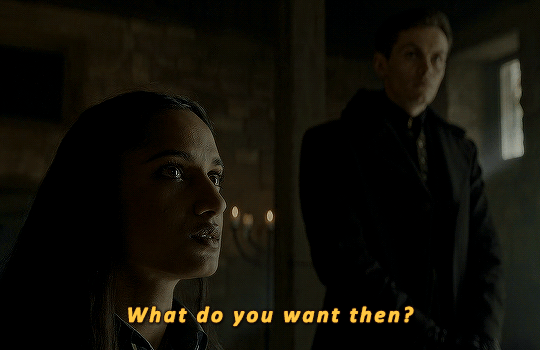

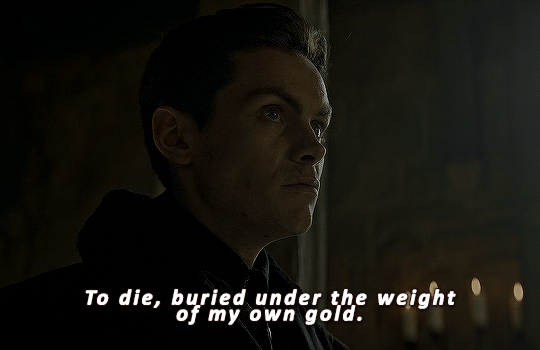
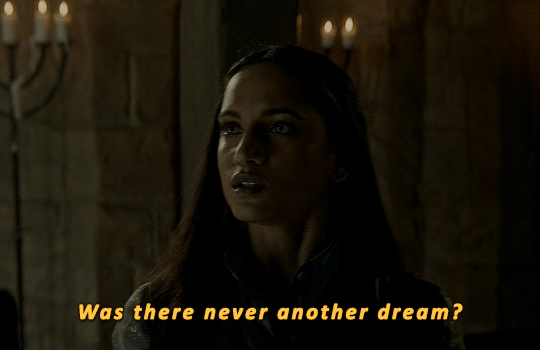


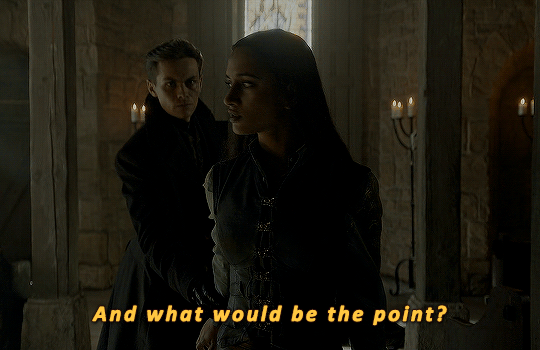

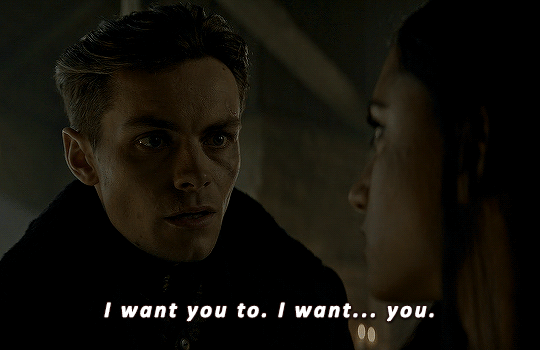
2x08 ‘No Funerals’ SHADOW AND BONE
Ch. 18 ‘Kaz’ SIX OF CROWS
#shadow and bone#shadowandboneedit#sabedit#sab spoilers#six of crows#kanej#kaz x inej#userbbelcher#userstream#dailynetflix#cinematv#tvcentric#mufaloedit#shadowedit#are you surprised to see this set? because i'm very surprised myself#they just did something to me this season and i couldn't help but gif them#also it's my first set on the new laptop i hope it looks alright#girl giffed on new laptop and everything has changed#shadowandbonecentral
622 notes
·
View notes
Text
Cass looks like a vampire
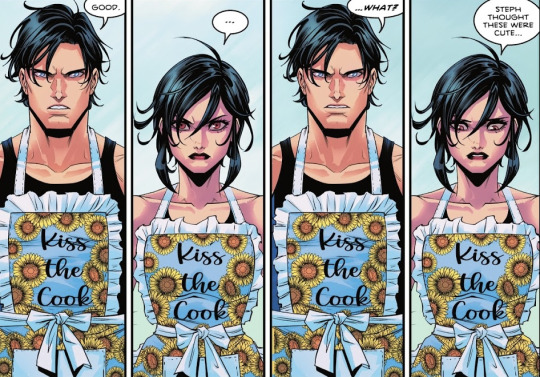
Nightwing #106
#dick is buff as fuck in this art style#and he's teaching cass how to make pancakes after she taught him a move so hmmm hmmmmm honestly i'm not mad at it#feels kinda off. like halfway between a fanfic story and what their relationship could've progressed to in canon#tt's story today was also alright other than that dumb joke about the ambulance#i like that ric mentioned that his memory wasn't good and that he lost minutes or days#that's def a continuation from the ric arc where ric said that he'd just black out sometimes#see i appreciate continuity details like that#buuuut ric keeping the letter that the guy gave him... lol it's just kinda funny since he torched the whole nightwing bunker#like oh yeah i'll save this letter for the old me in case he comes back but at the same time i'll burn everything old me had#Dick Grayson#Cassandra Cain#tuesday spoilers
261 notes
·
View notes
Note
Can you expand more on Ratio's philosophical influences? You seem super knowledgeable!
I've been sitting on this for some time because I didn't know what prompted this message and thus I didn't know what to answer and how. I guess it may be the comment I wrote about him having a socratic but also a sophist air?
There are a lot of details in Ratio's overall design that point towards philosophical references. I want to draw attention to the fact that since this is a vague message on anon I don't really know what to focus on or what could I skip because it's information already known, so what I'm going to say is a very brief summary of many ideas, which of course makes such ideas but the shadow of an echo of themselves, so faint they almost become untrue. I fervently advise to look more deeply into any of this if something catches anyone's interest. And I also want to point out that the problem of knowing a little bit of something, even its existence, is that seeing turns to seeking, and an excess of seeing is also a blindness; what I mean by this is that I'm not sure how much of what I am going to say was intentional by the developers/writers and how much is just me suffering the blindness of seeing too much haha
However, I also want to clarify that I do think many of the things I’m going to say are present even if perhaps not intended by the writers/designers. This is due to the fact that Ratio’s main influence is platonism, and platonism is everywhere in western philosophy and in general western culture; once you see it you cannot unsee it. So perhaps I am reading too much or making correlations between things in his design that were not meant to be linked, giving a depth to the character that is probably incidental, but that I would say nonetheless exists because it pertains to a certain philosophical tradition in which the elements stem from each other. I hope this will become clearer in its development if it isn’t right now.
Ratio has an Apollonian air. At first that and his mask made me wonder if he was going to be linked to the Mourning Actors, who alongside the Masked Fools for now remind me a lot of the Nietzschean Apollonian and Dyonisian dichotomy. This was conjecture on my side so I won't go on about this on this ask.
Ratio retains however the Apollo air. When I saw his splash art he reminded me instantly of the Belvedere Apollo, down to the strap under his chest like the sculpture has the quiver's strap. His sixth eidolon too recalls that sculpture, since it seems to be a mix of the pose in Michelangelo's David with the cloth in the Belvedere Apollo. Among other things, Apollo is a god linked to truth, medicine, archery and divination. The owl seems to be a reference to Athena, though.
Ratio also has the laurel or bay branch on his head, which is one of Apollo's traits. Laurel on someone's head became linked to victory as well as academic and artistic merit (I know in Italy people still use it when graduating, for instance; I mean, that's where the word comes from). The fact that he has half of it is most likely due to an aesthetic choice, especially given how the character designs are pointedly asymmetric in this game; however, I think it works well with how, no matter how much he achieves and how hard he tries, Ratio is never gazed upon by Nous nor accepted by the Genius Society with the frustration, bitterness and questioning that brings both himself and others.
This last point, being ignored by something akin to a divinity, works also with his Apollonian air, I'd say. Given his Apollo look, his snake-like pupils made me think instantly of Delphi. Delphi was where a temple to Apollo was (linked to a mythological snake, and snakes thus became associated with Apollo in imagery), and it was famous for its prophecies. Socrates (the master of Plato and main figure in his dialogues) is said to have started the habit of questioning he is mostly famous for because a friend of his went to the temple in Delphi and was told by the Oracle that the wisest man in Athens was Socrates. Socrates was perplexed by this because he knew nothing, and started posing questions to supposedly erudite people about the matters about which they were experts, only to come out of that feeling unsatisfied with the answers. Thus, Socrates thought the Oracle may be right after all, but he was only the wisest man because he at least knew that he knew nothing.
This works very well with Ratio because Socrates starts the journey by being distinguished among his peers, gazed upon, by a god (Apollo was supposed to possess the Pythia, or at the very least the prophetic power came from him), while Ratio never gets that recognition, and seems resigned to that already ("If this day I have not gained the recognition of Nous, it stands to reason that I never will at any point in the future" and "One day, I received a letter from the Interastral Peace Corporation (...). I could tell the solemnity of the invitation, so I excitedly passed it on to Mr. Ratio. Yet, he said nothing. I could sense his heavy silence even through the headgear. He then politely asked me to leave. The moment I closed the door, I heard a grim sigh followed by a self-deprecating laughter... Perhaps he realized he would never be accepted into the Genius Society..."). The mix of arrogance and humbleness, although enhanced in Ratio in a comical degree, is already somewhat present I would argue in the way Socrates talks in Plato's dialogues. Arrogance was also a trait Heraclitus, the author of the line cited in the name of his banner (“Panta rhei”), was famous to have.
So Ratio takes the position at the IPC. The Intelligentsia Guild is "often seen as a vendor of knowledge", and is looked down upon by the Genius Society. This is where I think the philosopher/sophist dichotomy comes in. Sophists were teachers, and were paid. They also were known to use rhetoric to convince (I would say there's a reference to this in one of Ratio's daily messages). In the political landscape of Athens, they were very useful for young men interested in politics. Some sophists became quite rich and famous. Usually philosophers, who didn't receive any money and did everything for the "love of knowledge" itself, looked down on them. At least in the texts of Plato that's often the case, although some sophists are portrayed under a better light even there; btw many of the things I've been saying come from Plato, but since this is an intricate subject on its own that isn’t directly pertinent to the ask I won't dwell on it right now.
Education in ancient Greece consisted of both intellectual and physical training. Intellectual education included music, poetry, mathematics, astronomy,... Physical fitness was held as something very important in a young man's curriculum as well. I think this is where the fanservicey choice of making Ratio so fit and pretty comes from. And I say “pretty” because beauty too is an important concept for Plato, and ancient Greece in general. It is also part of what linked the need of a young man to develop himself both intellectually and physically. Beauty is linked to harmony and order, both on an individual basis and cosmologically, often in some philosophical trends to a mathematical level; pythagoreanism has a lot of this.
Indeed I think pythagoreanism has to do somewhat with Ratio's design, considering his link to mathematics and geometry, and given his name ("Ratio" made me think of the golden ratio and in general pythagorean ratios even before it made me think of "reason" tbh), but in general the main philosophical reference in Ratio seems to be Plato, who was influenced greatly by pythagoreanism; this is one of the perhaps unintended indirect yet present links I mentioned at the beginning.
Platonism is very present in many ways in Ratio. It's noticeable even in his visual design, with how buff and handsome he is, arguably the references to Apollo and Athena, the geometry imagery, and even the sculptures he creates with his technique, but the influence is seen throughout his entire character, story, dialogue lines,... Part IV of Ratio’s character story, the way he talks with Roseth and what he says, has in my opinion an echo of platonic dialogues, as does his line “To spread knowledge, we must first make people realize their folly” recall Socrates. In the Trailblaze mission the main character had to argue for their innocence, which to me brought to mind the Apology of Socrates. On the other hand, the way this was done was very reminiscent of the socratic method, both in the discussion and counterargument mechanic of the game as, and especially so, in the use of memory. The main character had already the knowledge they seeked, yet they had forgotten about it, and had to retrieve it through memory guided by the intense questioning of Ratio; this, if applied to the research of a more essential knowledge instead of circumstantial, is the core of Socrates' maieutics. Maieutics is "midwifery". Socrates called by that word his method because he thought he was helping give birth to truths or knowledge that were already present in people's minds, if forgotten. It's what Ratio's skill, "intellectual midwifery", references.
The fact that Socrates' method, the "intellectual midwifery" to put it in in HSR terms, works in platonic philosophy is because it is taken that there are eternal truths, something Ratio believes as well (“The beauty of truth is that it never changes, even when no one understands it. Well, that's true for me, at least”). This has to do with what is called the theory of Forms or the theory of Ideas. The world that we see is but the shadow of that other conceptual abstract world, of which we have but forgotten memories and that we can access only with the mind's eye. Our soul once saw/was part of that other world, which is why it can remember it. Plato was influenced by the pythagorean view of a sort of journey or reincarnation of the soul after dying, to put it some way. This is also extensive, it has to do with orphism, is at the core of a lot of philosophical and theological western traditions, and thus I will say only this, even though it feels very close-to-fake simplistic haha. To summarise, there’s the other abstract perfect world of which everything in this world participates from and is but the shadow of (everything beautiful participates on the Idea of Beauty, eternal and inextinguishable, but it’s never as perfect as that Idea, only but its echo). The idea that the world is but the shadow of the other world is present in Ratio's English line when he is ko-ed, "Mere flesh…" (in Chinese, though, if I’ve understood correctly he says “«Mediocre»… hah”, which is very different if still lore-heavy). This of course implies a strong ontological dualism.
In this sense it is extremely interesting to me that Ratio’s banner is named “Panta rhei”, because Heraclitus is the epitome of the defender that all things were in constant change yet all things are One, the process of “becoming”, the constant struggle, at the core itself of reality (this too is harmony). He was pointedly monist, and is often contrasted to Parmenides, who spoke of eternal unchanging truths and beings. Both are cornerstones in the development of western philosophy and influenced Plato, but the choice calls my attention. In the Japanese wiki the line was linked/took to the buddhist concept of impermanence; while not necessarily related to that, this wiki suggestion made me wonder whether the choice of making “Panta rhei” the name of Ratio’s banner was done to further enhance another aspect of the many parallels between him and Ruan Mei, who also talks about life as something seemingly diverse and changing, hopes to obtain permanence, and talks about a something that transcends the multiple faces of life and that unifies them all (“Life is countless and varied in form. I firmly believe in that. Its beauty is like a myriad of flowers, and I want to pluck the one that never wilts”; “I wish to discover "the true essence of life," something that all individuals possess unknowingly, whether it is the materialism of their existence or an unknown entity beyond corporeal realms”; “The core of all existence is unity”). Even beyond that, in the context of everything else Ratio has going on, the mention of Heraclitus brings very intriguing food for thought to the table; yet I think this may be another instance of things that are, yet were most likely not meant by the writers.
Moving on, I’ll give a quick comment on the more explicit philosophical references we can find in Ratio’s traces, attacks and voicelines, and will dwell a bit only when I think they work well with the subjects and concepts I already commented Ratio plays with, otherwise this response will be eternal.
Summation (trace): in Chinese this is more clearly linked to the inductive reasoning, which in context it is obvious this is what this trace references; I don’t know why they chose to translate it this way. It is a method of reasoning that comes from the observation of particularities to generalisation, hence “summation”. It works well with Ratio causing more damage per debuff, and with the references to empiricism in Ratio’s attacks. The consequences in inductive reasoning are not truly ensured by the premises (the typical example is how you can’t ensure that all ravens are black by as many black ravens as you observe).
Inference (trace): this baffled me because again it is more clear in Chinese that this is referencing deductive reasoning, but every language translates “inference”, whereas in the “deduction” trace the characters are exactly the same as the ones in the Chinese wiki for “inference”, but every language translates “deduction”. I don’t know what’s happening here, I wish I knew Chinese and found this less confusing, but at least both words are present in his traces. Deductive reasoning is the one that goes from premises to conclusion. It is heavily linked to logic and it doesn’t necessarily require empiric knowledge.
Deduction (trace): this is what is called “inference” apparently in Chinese (if someone knows about this I would love to know what is happening in Chinese in these two traces). Inferences are, well, the process of reaching conclusions. It can be either through deduction or induction (or abduction, some would argue, but that’s another can of worms).
Mind is might (basic attack): in latin this is “scientia potentia est”, and while at this point the line is very detached from its context, initially it was linked to Bacon and Hobbes. I honestly think this is just a very convenient name for an attack of a character following a philosophy/sciences/knowledge thematic.
Intellectual midwifery (skill): Socrates, and platonism. I talked about this before.
Syllogistic paradox (ultimate): Syllogistic paradoxes were one of my favourite things when I was studying. Syllogisms are a form of logic reasoning, which consist of two premises and one conclusion. Though the premises may be true, and though the reasoning may be sensible, at times contradictory or illogical conclusions may be reached. This is a syllogistic paradox. Why this happens is because of a myriad of reasons, like the differences between natural and logical language, or the development of theories (the paradoxes in set theory are among my favourite things ever). I personally like to draw a strong distinction between paradoxes and contradictions. Anyway, I have a lot to say about this haha In general, this is what the name of the ultimate is referencing. It works well with Ratio’s traces. It also goes well with some of the other subjects present in his characterisation, like platonism, Descartes and such; there are a lot of paradoxes that arise from many of the theories that play with such topics. I think reading Alice in Wonderland’s apparent madness through the lenses of logic makes us see that most of those incongruences are actually pretty logical; many of them iirc are syllogistic paradoxes. Carroll was a logician. I mention this because this, as well as many other ideas present in Ratio, work extremely well with Penacony.
Cogito, ergo sum (talent): this is a line by Descartes, a rationalist. This too is something that fits Penacony incredibly well. Descartes starts doubting knowledge, ends up questioning pretty much everything, establishes inspired by mathematics and logic a method of acquiring the truth, and in the research of true knowledge he starts doubting everything with a methodical doubt to be able to tell what knowledge stands after being hit by doubt, and why, and try to reconstruct knowledge from there. Ratio’s lines about “seeking answers with a negative hypothesis in mind”, “When one is immersed in academic research, scepticism comes more naturally than belief” or “Pursuit tinged with negativity is still pursuit, and it is capable of leading us to the right conclusion” reminded me of Descartes’ method. One of the steps in the process is doubting one’s own existence, but since I (pardon the “I”, but the first person is very important in Descartes) doubt, then I think, and since I think, then I exist; cogito, ergo sum. This is closely related to platonism in some senses, and while Descartes’ philosophy comes in part from a criticism of scholasticism, it still has ties to it, but Descartes was a massive breakthrough in the history of Philosophy. I also won't dwell on this, but this is fascinating imo haha
Anyway, Descartes’ doubt about the existence of reality, of the world, is heavily linked to dreams, because in dreams we believe things are real but are not, so equally we could be at every moment in a dream and not be aware of that; only the existence of oneself is clear of this doubt (Zhuangzi’s text about the butterfly plays with this too; I comment this because butterflies have appeared in Penacony and the Zhuangzi’s text seems to play in an interesting way with the concept of “I”, taking it a different route than Descartes, which is a very intriguing idea but I don’t know much of Chinese philosophy at all). The concept of simulated realities, Matrix-like settings and such, all are strongly linked to this conception of Descartes, even though similar things existed previously (such as Plato’s allegory of the cave), and this works very well with Penacony again. Obviously, Descartes’ theory is strongly dualist, and it’s even established a body-mind dualism. The idea of the ghost in the shell also comes in great part from Descartes. Descartes’ view of the body was not too unlike that of a machine.
This was in a time in which clockwork and automatons were quickly advancing and fascinating people. Physic theories started to look (even more) like clockwork, with the universe as clockwork and god as a watchmaker that put it into place and then let it run its perfect course, needing or not (depending on the theory) adjustments from the watchmaker from time to time. I said before that harmony was linked to both the cosmos and the body, with the body in part being a reflection of the cosmos, and even linked to it by the harmony of the spheres. This new way of approaching the cosmological and human issues and developing Physics still has echoes of that. Newton, who is referenced in one of Ratio’s idle animations, is one of the epitomes of this concept of the universe as clockwork. Again, I don’t know how much they’ll do with these ideas nor even if they were written on purpose, but it all works so well with Penacony it would be a pity if they did nothing with this.
Another thing I want to note about Descartes is that besides mentally detaching himself from everything while doubting in his deconstruction and construction of knowledge, seeking undoubtable truths, he famously did so physically as well for some time when he first started thinking about the matters in his Discourse on the Method one night: “having no diverting company and fortunately also no cares or emotional turmoil to trouble me”, while he “spent the whole day shut up in a small room heated by a stove, in which I could converse with my own thoughts at leisure”. This reminded me a lot of Ratio’s head and how he uses it: “with the headpiece on, isolated from my five senses, i can think without interference”, “he put on a headgear to keep away all external distractions and completely focus on thinking? Who else in the world could manage that?”.
Mold of idolatry (technique): this links mainly again to the theory of Forms of Plato, with that representation of something else that is what is real. The name of the technique and what it does works well also with the idea of idolatry, especially of idolatry of false gods, idols or even falsehood in general, and how Ratio criticises people’s blind infatuation with geniuses. It also reminds me of Nietzsche’s Twilight of the Idols, or, How to Philosophise with a Hammer. Among other things, Nietzsche heavily criticises platonism and platonic philosophy, and mostly all western philosophers (he has kind words for Heraclitus, for instance).
Wiseman’s folly (ultimate’s effect): the idea that knowledge or beholding the truth brings to something similar to madness or ends up leading to foolishness is a very common one. Many of the Ancient Greece philosophers were said to have been extravagant. Diogenes the Cynic and Heraclitus were two such examples. Democritus was said to have plucked out his own eyes. Empedocles is said to have killed himself in a volcano. There’s Nietzsche, Georg Cantor, Kurt Gödel. It is the idea of the wise ending up being very much like the fool, but also the idea of the wise ending up losing sight of basic truths I believe, in that alienation from the world.
Know thyself (eidolon): this is what was inscribed in the temple of Apollo in Delphi I spoke of before. This is linked to Heraclitus, Socrates, Plato and platonism, of course. I think when it comes to Ratio that’s it, really. But this maxime has had a lot of implications and interpretations in different contexts and at different times. It could be seen as just a salutation, recommending temperance, the idea of knowing oneself and one’s limitations as key to succeed when approaching subjects or problems, the first step of getting to know anything at all, humans and the world being closely linked and even reflection of god so studying one helps studying the other, etc.
Vincit Omnia Veritas (eidolon): the translator says this means “eternal truth” in Chinese, which would play way better with the philosophical ideas and concepts present in Ratio while still playing with his name, “Veritas”. I won’t dwell on this because I’ve already talked about the link between eternal truths and Ratio a lot, and besides I can’t even confirm this is the true meaning because I don’t know Chinese.
Eidolon “The divine is in the details” seems to be a reference to a Chinese idiom that comes from a book. I don’t know if it has greater significance, but if anyone knows I am all ears. The other eidolons obviously work with Ratio, but I don’t see obvious philosophical influences so I’m skipping them.
Esse est percipi (ultimate line): “To be is to be perceived”. This is a line by Berkeley and linked to his philosophy. He criticises both dualism and materialism. The core idea is that the world’s existence is entirely dependent on the mind, that things don’t exist unless they are perceived and thought. His justification for one’s own existence seems to come from this perception, as Descartes’ came from thinking: “I do nevertheless know that I, who am a spirit or thinking substance, exist as certainly as I know my ideas exist”. Parmenides has a similar idea in his poem. I don’t think this was intended to be read too much into when it comes to Ratio, but I think it fits nicely with the other topics he has going on, and the dichotomy they often entail. It also works well with Ratio’s plaster head, with how he says “I don't have to set eyes on stupid people. Of course, they don't want to see me either”, with how he uses it to go unnoticed or unrecognised in both Herta’s Space Station and Penacony, and I think it could be overread or taken to more exaggerated levels in a juicy manner reading this under the notion of nothingness, mediocrity and being disregarded by Nous.
One of the listed researched achievements of Ratio is in the field of epistemology. Epistemology is the field that studies knowledge. Although studied in particular at times, it is of course often linked to ontological conceptions; all the philosophical theories I’ve stated carry with them epistemological implications as well as ontological. In one of Ratio’s character stories there’s a mention to epistemic logic which is, speaking broadly, a logical approach to the analysis of knowledge.
Another one of his listed achievements is in natural theology, which is the study of god through reason and logic instead of things such as transcendental experiences or revelations. This is very common in philosophy in general. It often has to do as well with the world as a harmonious whole, god as watchmaker/the universe as clockwork, and teleology. I will mention Newton and Darwin here because Newton is referenced in Ratio’s idle animation, and Darwin because he broke up with the teleological tradition when it came to the world. Ratio’s work is named Aeons: A Natural Phenomenon, and the title and its description, how its “Aeon non-theism”, makes it seem to me like he wrote of Aeons as if they were just another form of life or something that pertains to nature itself and not detached from it, which although very different from Darwin’s ideas did remind me of how he dismissed teleology in nature. This also clearly links, in my opinion, to Ruan Mei.
Other than that I also want to note Ratio’s final speech to Screwllum about inspiring doubt and scepticism when it comes to established ideas and geniuses. It reminded me of Socrates, how he was said to have “perverted” youth inspiring all that questioning among other things. It reminded me of Nietzsche, how he fervently encouraged individuals to use critical thinking, question dogmas and preconceived ideas they could have, and come up with their own conclusions that does not mean necessarily negating absolutely everything they held true before the questioning (this exchange between Screwllum and Ratio: “Screwllum: «You wish to uproot the researchers' blind worship of geniuses». Dr. Ratio: «I am only laying out my questions».”). It also pointedly reminded me of Kant's “Sapere aude!”, “Dare to know!”, and his text What Is Enlightenment?, in which among other things Kant talks about the lack of courage, not of intellect, of people to think for themselves, how humanity lives in a constant immaturity or adolescence of the mind, and urges them to get out of that state, to dare to know. Kant was greatly influenced by rationalism but said to have awaken from the rationalist slumber thanks to empiricism; the plays on rationalism and empiricism, deduction and induction, and the presence of idealism in the rest of Ratio’s writing as well as this fervent push for people to snap out of their lack of criticism and dare to think for themselves are what made me think of Kant here.
There’s more things to talk about Ratio, like his view on mediocrity and geniuses, and how that view is constructed and described in traces through fragments in his lore, the character stories, snippets of conversations; how he seems to be so similar in character and drive to geniuses, but never accepted as one, and how he is regarded as very different and eccentric by “normal” people, even in the Guild. In short, how he is detached from both the “normal” people and geniuses, like suspended between both states without being either completely, and how it makes so much sense in this context that he tries to breach the rift between both. I couldn’t help but mention this, to avoid forgetting this aspect of his characterisation in the future, but I won’t dwell on this because it isn’t really directly linked to any philosophical influence that I can think of.
I think this is it. Hopefully I didn’t forget anything important. And I’m sorry it is so long, but I really tried to summarise. As I said, I may well be reading too much into some of these things, but I also think that since Ratio plays with many of the core authors and concepts in the history of western philosophy, some things I expect were not intended by the writers still are present somewhat, because mentioning this or that thing alongside this or that other thing ends up having implications if you know a bit of the context.
I hope this was clear enough. However, I can try to explain myself better or further if I wasn’t. Philosophy may look unapproachable and dry at times at first, but it really isn't, it just needs one to get accustomed to some basic terminology, and it becomes fascinating and beautiful, and lifechanging haha. I would love it if Ratio is making people get a little bit more invested or interested in it, or open to explore it. The Stanford Encyclopedia of Philosophy is a good place to check the main ideas, texts and authors that may spike someone’s interest if anyone wants to read further about anything I've said or compare sources, but tbh I think even Wikipedia can be useful with getting a first feel of some basic ideas to know what to look for. And although I am not an authority or the most trustworthy source at all, I will help as best as I can if someone reading this has any further question. I recommend reading the texts firsthand though, with historical context in mind and footnotes perhaps if possible, and making one's own mind about everything.
#Dr. Ratio#Veritas Ratio#Ratio#Dr Ratio#Honkai Star Rail#Sorry for all the tags but I want to try to reach the person who asked this since it's been some time#If you are still around and see this I would appreciate confirmation that you saw it just to ease my mind a bit xD#Ratio fits Penacony so much I hope they do something with it#I talk too much#I should probably delete this later#And reread it just to make sure everything is alright after copypasting the text to tumblr#Traces
81 notes
·
View notes
Text
hey gang, do we all agree that ten's massive ego and god complex (or rather those traits being especially prominent in his regeneration) were a direct result of what happened in Parting of the Ways?
"marlena what the fuck do you mean" okay well think about it; ninth doctor. fresh off the time war. thinks himself unlovable, unworthy of love. just did a double genocide, including against his own people. he's returning to his old ways of lallygagging around helping humans in a more-than-desperate attempt to repress his feelings and try to mimic the person he was before the war. he's so vulnerable.
enter rose tyler. to him? she's the most amazing person in the universe. he loves her, full stop. she makes him feel like maybe he's still capable of love, but does he really trust her love for him? after all, she doesn't really know him, does she?
all that comes to a head when rose tyler becomes the bad wolf. in that moment, she sees everything. everything everything. the doctor's past, and the doctor's future. every horrible thing they did and will do.
and in that moment, with all this truth streaming constantly into her brain, most amazing person in the universe rose tyler looks at him and goes "i want to save you. you are worth saving."
bro no fucking shit ten has a motherfucking god complex, jesus christ i would too!!!
now personally i think nine would have rationalized it and been relatively Normal 'bout all that noise had he survived onwards, but unfortunately he didn't, and so when the doctor's subconscious and the universe were holding hands deciding what their new little guy should be like... well, we're already making him just for her, and she loves him.
rose tyler loves me. she loved me even when she knew me.
i'm just saying, that "Bad Wolf chose to save me" to "the laws of time are mine to command" pipeline is a straight vertical drop only a few feet long.
#there's also an argument to be made about the time vortex being responsible for his death#and how that might have contributed too#yeah sorry the inpenatrable waves of time lived inside your boyfriend and killed him#yeah and it kinda fucked up his regenerarion#so sorry girl your boyfriend's new life is tainted with the pull of ultimate power over one's domain#this won't actually mean much to you since your boyfriend will split in two#and the one you'll get to keep is too busy having a human brain and being warborn#but this will have horrible consequences for him after he turns six#and will emotionally devastate just about every other person he crosses paths with#but hey that's alright; remember that drunk guy who foretold good tidings on new year's?#yeah that was your boyfriend. he went back to see you as he was dying from the results of his god complex.#he came back to be with the reason he did everything— the reason he was— one last time#okay i'm making myself cry right now i gotta chill#running my mouth#doctor who#nuwho#tenth doctor#10th doctor#ninth doctor#9th doctor#the doctor#rose tyler
52 notes
·
View notes
Text
Ramón is being such a big brother to Sunny. I love this so much. My chest physically aches with how cute and sweet this is.
#like. Idk it just. Really solidifies how much of a family morning crew is like#Ramón sees that Sunny’s kinda nervous without her pa around and is immediately like. Alright. Brother instincts kickin in#I am staying by your side until we are both 100% certain you are safe and comfy#like. I remember being an anxious five year old girl and my big brother offering to sleep in my room so i would feel safe after a nightmare#or smthn#just#Ramón immediately stepping up for Sunny and being like. alright. You’re scared. I’m gonna do everything I can to change that.#It’s just so sweet and I cannot wait to see how these two interact in the future#raine rambles#qsmp#qsmp eggs#qsmp ramon#qsmp sunny#morning crew
64 notes
·
View notes
Text
Treating Wilbur as I do dream currently: Expect to see stuff for his character still reblogged, but I won’t tag for him anymore, and I’m disengaging with him as a content creator at this time. Don’t ask me anything else about this, I don’t want to talk about it.
Still probably gonna be offline for a while bc I’m still processing and need to not be barraged by opinions rn. Mostly posting this so I can run my queue. Staying on the content grindset 💪
At the advice of Shelby and her mods, I’m not going to speak his name like this again because he is not the point. Shelby is. But if I didn’t say anything I figured people would think I was ignoring it, which I’m not. I’m gonna continue my break and I hope you all are taking care.
As a final note:
This has brought a lot of attention to Shelby that she didn’t have before and for good reason. But please do not make her abuse into her fame. If this has compelled you to subscribe to her, follow her, and support her, then stay for her and not for her hurt. Watch her streams, engage with her. Be normal. Don’t ask her more, even if it’s from a place of good intention. She’s more than a victim: she is an artist and businesswoman just as much as every other streamer you love. She isn’t “the streamer who was abused by xyz,” she’s shubble. Let her return be welcome and supportive, but please let her get back into the routine she wants. Normalcy is probably the thing she wants most right now, and the best we can do is help her achieve that.
#finally: I have the right to change my opinion. that’s what humans do if they get new information#I’m worried I phrased some of this very poorly and I’m sorry in advance if I did#as always there’s not a nice way to just say everything in my mind in a neat little way#please trust that if I worded something bad I meant it with good intentions 😭#and please correct me but know I probably won’t see it for a while. being off tumblr is good and I want to keep that goodness going#alright. talk later ❤️#abuse tw#discourse#wilbur situation#long post
41 notes
·
View notes
Text
i know this says 1950’s but this is almost exactly how i imagine steve’s mom to act
#i just feel like it would explain a lot#steve harrington#the martini and everything#i feel like she was the fun parent#fun as in letting him do whatever he wanted and taking him places with her yk#but she also didn’t want kids or ever act like an actual mom#and then imagine her and billy interacting#either a whole disaster or they kinda get along alright#like not great because as a rule billy doesn’t like steve’s parents because of how they are#same as steve doesn’t like billy’s#but they can hold a conversation over dinner if billy puts his fancy boy act on yk#obviously over for dinner as just steve’s friend though because god forbid#does everyone see the vision or is this just a me thing
465 notes
·
View notes
Text
do you ever think about Garak waking up and seeing Julian in that chair, uncomfortably crammed in and slumped over asleep, and wonder how he must've felt when he realized Julian wasn't going to leave
#star trek: ds9#elim garak#julian bashir#otp: I need to know that someone forgives me#Garak wakes up in a haze of pain and overstimulation and far too many feelings#and the first thing he sees is Julian asleep in that chair right at his bedside#after Julian has promised him he'll stay with him and help him through everything- no matter what he did#its one thing to give your word its another to follow through and theres Julian. following through#theres Julian staying by his side#im gonna chew on glass.#how do you think Garak feels about it afterwards#knowing that he responded by attacking him#Julian is hovering over Garak's bed in the infirmary checking his readings and chatting away with him#but then he turns a certain way and winces#he doesnt say anything but his hand goes to his back#Garak asks if he's alright and Julian waves it off#says he's fine he just slept wrong#but there's this look in his eyes. guilty almost#he doesnt want to say it#but Garak knows#god The Wire you will always be famous I think about you every day
53 notes
·
View notes
Text
I've been reading the Percy Jackson books for the first time over the past two weeks! Just finished "The Battle of the Labyrinth" last night (which btw is my favorite of the series so far!!)
I have now gained a new obsession but it might not be what you think
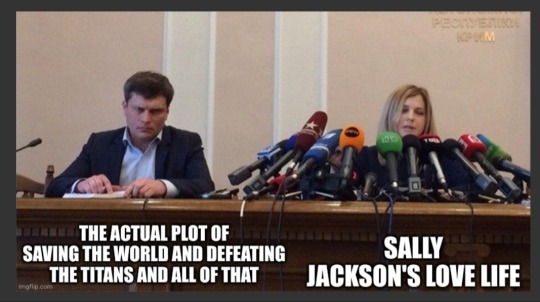
#like i swear to god i did not expect to be absolutely enthralled by the protagonist's mom kahskahfjkaja#she's just so fascinating to me#she's so kind and smart and she has given EVERYTHING for her son okay#like her staying married to an abuser for years to protect him omg she deserves the world#like when Poseidon called her a queen in the first book he was 100% right alright she is a queen#the woman murdered her abuser with a monster's head LIKE THAT'S SO AWESOME#also i cannot explain how obsessed i am with her relationship with Poseidon okay#like. do i want her to still have feelings for him? yes. do i need poseidon to pine and long for her from the distance?? ABSOLUTELY YES.#like realistically it's more likely that be does not but I need it okay#like at first i wanted them to be reunited because you know. of course i did.#but i am perfectly content with her finding love and happiness with a mortal man and Poseidon pining for her from the distance#like listen. this woman is amazing and she deserves to have an immortal all powerful god unable to get over her alright SHE DESERVES IT#but the way he just showed up at Percy's birthday party and called her as beautiful as ever????? omg??? BECAUSE YES SHE IS#and she blushed??? be still my beating heart#kahskahfksja honestly laughing at myself right now like I'm just over here watching a Sally Jackson tele novela in my head#AND HAVING THE TIME OF MY LIFE#percy jackson#no spoilers please if you see this post i know very little about the story and I'm thoroughly enjoying myself that way#also jsut as an fyi i am also a little obsessed with Percy and Annabeth kajakshdjshsha they are too cute and intense#sally jackson#percy jackson and the olympians
36 notes
·
View notes
Note
I'm genuinely really curious as to where you're getting Julian and Lucio being "same person, different font" from because personally I can't see it at all.
Uhh well there's a lot of things that make them similar honestly
Their designs are very similar, they both have angular faces and sharp features and their main color is red (Julian is red-black and Lucio is red-white)
Both have a lot of intimacy issues and believe the only thing they're desired for is sex but they crave real love
They're both running away from something constantly (altough for different reasons)
Their world literally revolves around MC and they're very dependant on them (which i guess could be the case with any of the M6 but in their routs MC "saves" or like "fixes" them in a way) ((i don't like using the word fix but idk how else to describe it))
Theres probably a lot more things that make them similar, I'm not that great at analyzing anything lol but as @arsenicxarcana pointed out, they were the same person in the early concept desigs (probably) so that's probably why they're similar :)
#I'm not great at this but i hope i did alright#also first ask i ever got! woo!#and also that's just how i see them it's not set in stone#if someone wants to add on feel free :) again I'm not sure i got everything lol#the arcana#julian#lucio
68 notes
·
View notes
Text


You see two Photos.
The first person on the left, tried desperately figuring out how to be a 'real' Woman.
The Photo was taken in August 2021
And a strong nonbinary person butch woman* on the right who realised that you can only be happy if you're yourself. This Photo was taken in September 2023
both of them are me.
I changed and grew so much during the last two years and I've just started yet!
If you can relate to the Person in the left Photo let me tell you something. Gender isn't something you'll figure out how to live in, gender is something you figure out for yourself through being yourself.
Our society put a gender on you, like a pair of shoes and first you'll walk in it but soon feel that they don't fit. They hurt you, especialy during long walks in publik. And everyone want to do you some good by telling you that you 'will grow in', or 'you'll figure out how to walk correctly in them', but no!
If they don't fit, throw dem away and finaly put the shoes on that fit you!
It may take some time but it's worth it. You got it! I belive in you!
Thank you for coming to my ted talk
*update 2024. I refer myself as a butch woman now. But the message behind this post is still relevant.
as a butch, I fall also into the nonbinary spectrum or atleast I feel still connected to it.
for the wide majority ppl won't see me as a 'real' woman, cause I am to masculine and that's what I am fighting for now!
#when I look at my old Photo I can see how unsure and unwell I am#I want to take myself in the arm and whisper 'everything will be alright'#Today marks my first month on T#and the septum is fake I just wanted to try something out#personal post#personal ramblings#transition#transgender#transmasc#trans enby#nonbinary#non binary#enby#before and after#photos#my photography#lgbtqia#queer#trans positivity#trans pride#pride#hrt#ftm hrt#testo#motivation#comfort#portrait#photography
59 notes
·
View notes
Text
Once again I am the ONLY "I Do" defender. SOMEONE back me up here.
#starlight express#stex#COME ON. wHY AM I THE ALONE ONE WHO CRIES TO THIS SONG.#“I see you when you're looking lonely. And I hope that everything's alright.” ON THE FLOOR. SOBBING. WHY IS IT JUST ME.#I'm trying to distract myself with silly trains but the tragedies are still Looming
25 notes
·
View notes
Text
thinking about writing a third act break up/make up scarian fic rn…… like where they both realise that they miss and love each other at the same time and their respective best friends have to tell the other “he just left to go find you” and when they finally meet back up it’s a passionate kiss and a breathless apology and confession and maybe it’s raining and maybe they don’t care and maybe they’re getting soaked but they’re laughing and they’re together……
#like running through busy streets at night looking around at every face blindly hoping they find one that so achingly familiar…#and then they do… and they pause for a second and time seems to stop but they still see people pass by them; move around them#get annoyed that they’re just standing… but they don’t care because nothing else but the person fifteen feet in front of them matters…#and the clock starts ticking again and they race through the streets… and they don’t go home after that…#they hail a cab and go to a park… or to the river and they look at the city lights#but only in the reflections of each others eyes.. and they’re sitting on a bench when the sun rises and finally… everything is alright#sorry thinking about them so hard#they just mean the world to me#oh also happy new year!#scarian#desert duo#hermitshipping#grian#gtws#hermitcraft#life series#au concept#break up au
29 notes
·
View notes
Text
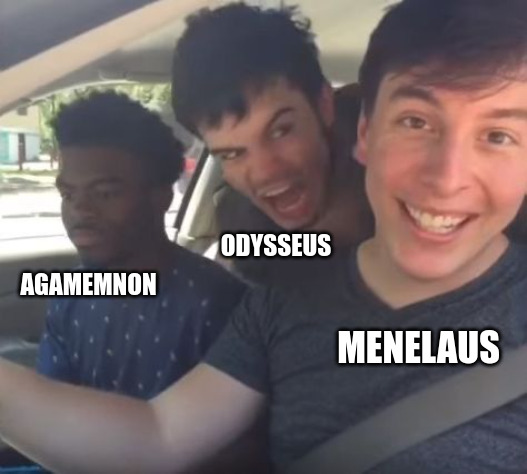
#It works for many aspects of their lives😌#Oath of Tyndarius Agamemnon: “I'm just here to help my brother.😌”#Oath Odysseus: “FUCK YEAH!! I wasn't even planning to get married and I STILL got a fucking cool wife!!!😍”#Oath Menelaus: “My wife is so pretty and I love her so much. I'm so happy.🥰"#During the war?#Agamemnon: Dead inside. Exhausted. trying to keep shit under control. so so sad#Odysseus: part of the reason shit is out of control. Feral. Down for every single war crime as he misses his family.#Menelaus: so exhausted and sad but trying to act like everything is alright. (You will see a man barely holding it together)#Yay! :D#odysseus#menelaus#agamemnon#greek mythology#tagamemnon#iliad#greek mythology memes#the odyssey#the iliad#odyssey#Mad rambles#shot by odysseus
45 notes
·
View notes